Piratic Flycatcher (Legatus
leucophaius)
On September 12, 2003 a vagrant from
southern Mexico suddenly appeared at
Bosque Redondo near Fort Sumner,
NM. It has since been seen by multiple observers and identified
as a Piratic Flycatcher, distinguished from the larger Variegated
Flycatcher by its small bill, nearly unstreaked back and less extensive
rufous
areas on its tail. It gets its name from the manner in which it
nests. Rather than building its own, it harasses other species of
flycatcher until they abandon their nests, then does some remodeling
before laying its own eggs.
For more information about this species, see: http://animaldiversity.ummz.umich.edu/accounts/legatus/l._leucophaius$narrative.html
We missed seeing it when we stopped by on the
morning of September 14 while
on our way to Amarillo to visit three of our grandchildren.
On our way back to Albuquerque on September 16, we arrived at about
8:30 AM to hear that it had been seen only 20 minutes
earlier. Luckily, we re-found it at 9:10 AM and observed it for
almost an hour. The bird ate Russian Olive fruits. It
hovered (fluttered rather clumsily) as it plucked the olives from the
tree. Once it made a
brief foray and caught and ate a medium-sized dragonfly. We did
not hear any vocalizations.
Here are several thumbnails to illustrate various plumage
features. Click on
them for full-sized views.
Front
View=====================Back and Rump========Side
View=============Wing Covert Detail
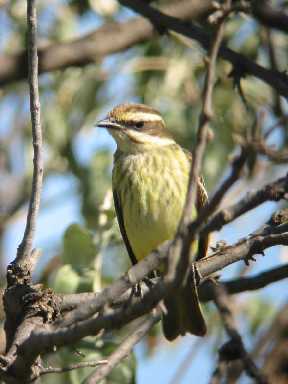
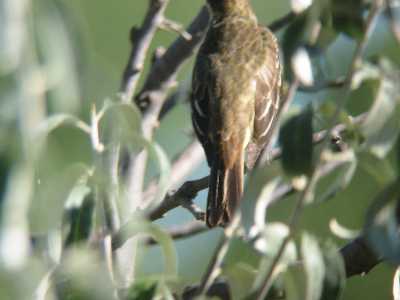
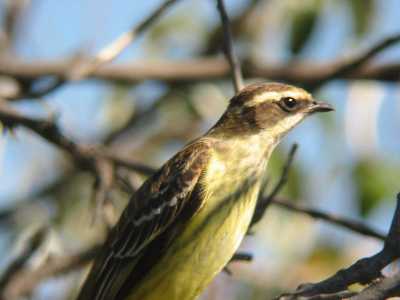
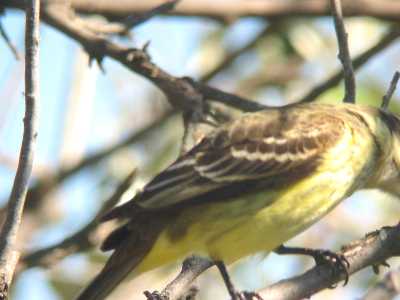
Throat,
cheek, chin, all-black bill====Close-up of throat===Contour feathers,
back===Under tail===========Back and tail
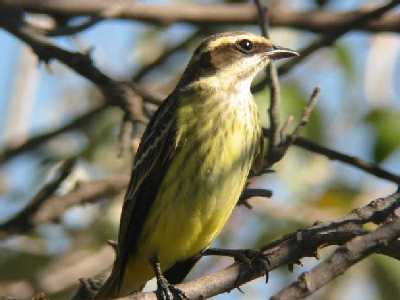
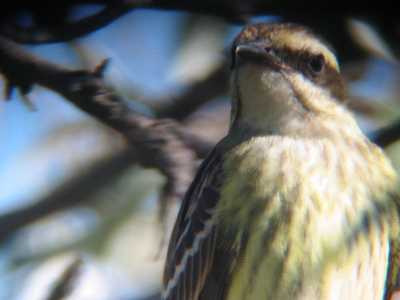
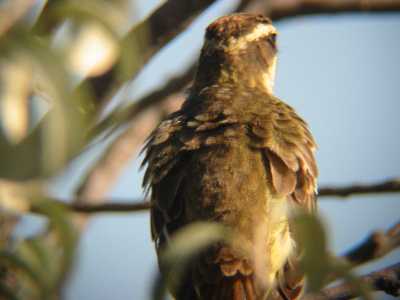
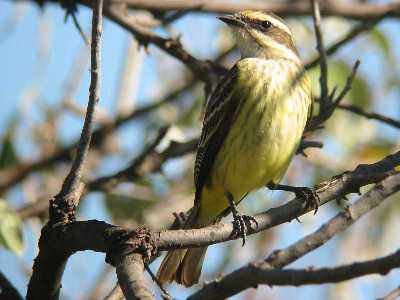
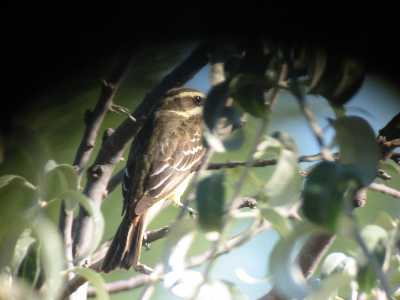
The latest reference I could find was in Birding,December, 2001.
At that time, it had been seen only four times in North America:
On an oil rig off the Texas
coast, 21-22 October, 2000 (the only other bird identified
contemporaneously);
Big Bend National Park, TX, 4 April
1998 (first thought to be a Sulphur-bellied Flycatcher);
Rattlesnakes Springs, NM, 1-7 September, 1996 (first identified as
Variegated Flycatcher);
and retrospectively, south Florida 15 March, 1991.
The species ranges from southern Mexico into northern Argentina and
southern Brazil. Jerry Oldenettel believes this bird is the
Mexican subspecies.
Photos taken with Canon A40 digital camera (3x optical zoom) through
lens of 77mm KOWA spotting scope (20x zoom). For more information and
pictures of equipment and camera adapter, click here.
Photos and content
Copyright 2003 Ken and Mary Lou Schneider












